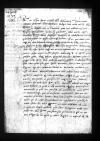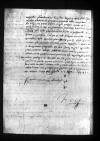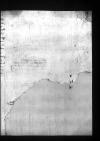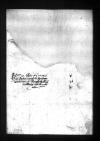Reliqui litteras meas ad Dominationem Vestram Reverendissimam in discessu meo ex ⌊Cracovia⌋, quas iam redditas esse reor. Et cum ⌊Petricoviam⌋ venire non potuerim, volui tamen inter eundum reverendissimos dominos ⌊archiepiscopum Gneznensem⌋ et ⌊Vladislaviensem⌋ invisere, quorum primum in ⌊Squirneyowicze⌋ inveni. Ab eo pro veteri eius erga me benevolentia humanissime exceptus, de multis contulimus et praesertim de his, quae negotium Varmiense concernunt declaravitque mihi Dominationis Vestrae Reverendissimae erga me ea in re optimum animum et eam propensionem, quam expertus sum semper, habeo itaque Dominationi Vestrae Reverendissimae quas possum gratias illasque habere, quam diu sum, non desinam. Promisit etiam mihi reverendissimus ⌊dominus archiepiscopus⌋ omnem operam et adminiculum suum cum apud ipsum reverendissimum ⌊dominum Varmiensem⌋, tum etiam apud ⌊maiestatem regiam⌋. Ego item, quantum Deus in cor meum posuerit, mihi ipsi non deero.
Veniens ⌊Thoroniam⌋, omnium ordinum terrae Culmensis applausu acceptus, egi cum quibusdam, qui ad id apti mihi videbantur, non pauca et praecipue cum magnifico domino ⌊palatino Culmensi⌋, qui mihi dixit reverendissimum ⌊dominum Varmiensem⌋ videndi mei magno teneri desiderio et quod in omnibus conventibus mei semper honestissime meminisset et cum iam pro 1500-09-29⌊festo sancti Michaelis1500-09-29⌋ dominatio eius reverendissima in ⌊Marienburgo⌋, quo me conferam, constituetur, spero me voti compotem futurum. Interea, donec inde scripsero, consultius mihi visum est, ut nihil ⌊illi⌋ rescribatur seu respondeatur, quousque de mente illius Dominationem Vestram Reverendissimam certiorem reddidero. Ubi cum si opus erit aliqua acredine, cum flecti benigniore modo non posset, Dominatio Vestra Reverendissima pro summa sua prudentia et gratia in me non vulgari sic omnia apud serenissimam ⌊maiestatem regiam⌋ et responso ab illa  BNW BOZ TG 14 nr 1682, f. 161v temperabit, quemadmodum ⌊reipublicae regni⌋ et rebus meis melius expedire videbitur.
BNW BOZ TG 14 nr 1682, f. 161v temperabit, quemadmodum ⌊reipublicae regni⌋ et rebus meis melius expedire videbitur.
Et cum me et fortunas meas iampridem illo suo numquam a me merito favore et gratia prosequi coeperit, ut in ea prosecutione et erga me propensione perseveret, humiliter supplico. Christus, Dominus noster, quam diutissime sospitet et prosperet Dominationem Vestram Reverendissimam in omnibus. Cui me ex corde summopere commendo et rogo venerabilem dominum ⌊Kyowski⌋, quem Deus per Dominationem Vestram Reverendissimam in eum, quo est, statum felicitatis posuit, hortetur, ut accuratiorem text damaged⌈[accuratiorem]accuratiorem text damaged⌉ et benigniorem ⌊patris sui⌋, viri boni senioque et gravi aegritudine pressi, rationem habeat. Inhabitat bonus nobilis, ⌊pater eius⌋, villam, cuius potior et maior pars mea est, cogiturque satis tenuiter on the margin⌈terter on the margin⌉ vivere possetque ei dominus ⌊Kyowski⌋ sine suo gravi detrimento non parvum re parva praestare auxilium, quod illum nondum fecisse satis mihi constat. Utinam mihi patrem meum, ut ⌊illi⌋ suum, videre liceret, non pudefierem profecto. Sed de his hactenus.
 BNW BOZ TG 14 nr 1682, f. 162v
BNW BOZ TG 14 nr 1682, f. 162v
 BNW BOZ TG 14 nr 1682, f. 161r
BNW BOZ TG 14 nr 1682, f. 161r
 BNW BOZ TG 14 nr 1682, f. 161v temperabit, quemadmodum
BNW BOZ TG 14 nr 1682, f. 161v temperabit, quemadmodum 


